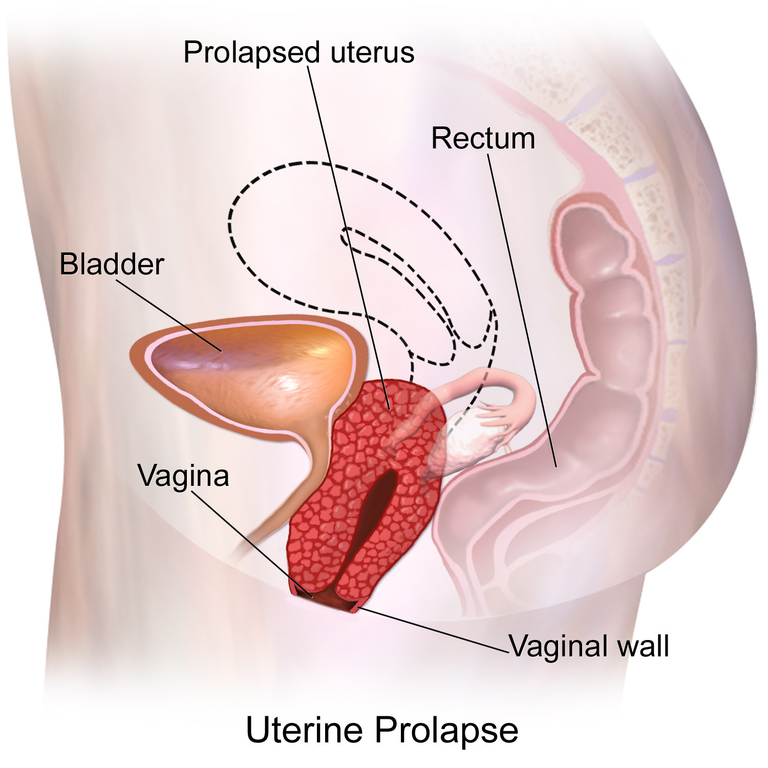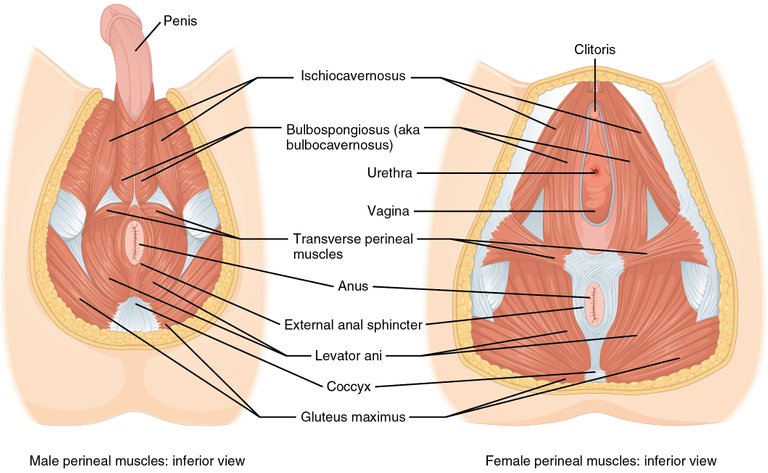The way our lives get to change drastically when something goes wrong has to be greatly studied, it brings a lot of discomfort and pain with it.
I stumbled upon the topic, "pelvic floor dysfunction'', recently, and I was highly interested in knowing more about it and finding out what it entails, but as much as this condition affects the female gender, the male gender can get seriously affected too, and you trust me to share whatever I learn with you here. So shall we?

commons.wikimedia.org
Pelvic floor dysfunction is when there is difficulty with relaxing correctly and coordinating the pelvic floor muscles to urinate or poop. Let's look at the pelvis as being the housing of organs like your rectum, prostate, uterus, and bladder. The muscles of the pelvic floor are the foundation for the said home, they are the support structure that helps to keep everything in their place.
Usually, going to the bathroom is often without any problem because your body can tighten and relax the pelvic floor muscles, just the same way your biceps tighten whenever you lift a heavy box or clench your fist.
However, in the case of pelvic floor dysfunction, your body continues to tighten the muscles instead of relaxing them, with this tension it could translate to; having a pee or poop leakage, an incomplete bowel movement, and trouble evacuating a bowel movement. For a female, pelvic floor dysfunction may cause painful intercourse and for males, there could be problems with getting and keeping an erection.

commons.wikimedia.org
You may begin to suspect the presence of pelvic floor dysfunction if these signs are becoming visible;
When you need to frequently visit the bathroom.
When you need to strain or push before you can pass a bowel movement.
Leaking urine.
Leaking stool.
When you need to struggle in the toilet, or in some cases, even have to use your hand to help you pass stool.
Frequently having to start and stop while urinating.
Unexplained back pain in the lower area.
Experiencing symptoms alone is not a guarantee to ascertain the presence of the condition, but examination by medical experts is what will guarantee the presence or absence of the condition. When you get to the hospital, these evaluations may be carried out.
A urine examination involving urine analysis and culture is performed to detect infection, inflammation, blood, and other underlying kidney issues.
Cystoscopy is an in-office test that makes it possible for physicians to have a direct look into the bladder through the lens of a small camera inserted into the urethra, this test is commonly used to detect inflammation, tumors, or stones.
Multi-channel urodynamics testing can also be carried out to evaluate the bladder's function.
Electrodiagnostic testing (EMG) of the pelvic floor, the test is to evaluate the nerve function of the pelvic floor. EMG determines the response of the pelvic floor's muscle to a series of small electrical impulses.
Behavioral therapy is also employed as a technique, and it is a safe and easy-to-learn method having no side effects. Examples are; bladder training, relaxation exercises, pelvic muscle training, and fluid and dietary modification.
Medications and surgery can also be utilized effectively.
Treatment is the most effective way to stay clear of pelvic floor dysfunction forever, it would stay or become worse if not treated. So please speak up the moment you notice something feels wierd or uncomfortable about your body. But during the process of treatment, not giving up is the most important thing. It could take months before symptom begins to improve, but once you stick to your care plan, you will most likely observe improvements.
During treatments, however, it is advised that medications should be seriously taken, activities that increase pain or tension in your pelvis should be avoided, and consume lots of water as you stick to your meal plan.
For Further Studies.
https://www.nichd.nih.gov/health/topics/pelvicfloor
https://my.clevelandclinic.org/health/diseases/14459-pelvic-floor-dysfunction
https://www.healthline.com/health/pelvic-floor-dysfunction#treatment
https://www.ncbi.nlm.nih.gov/books/NBK559246/
https://www.webmd.com/a-to-z-guides/what-to-know-about-pelvic-floor-dysfunction

Hi, I am Tobi, a writer, speaker, relationship blogger, and lover of good music. I love making friends and learning from people. If you want to hear me speak on relationships and general life issues, you can find my YouTube channel where you can watch any episode for free, please do not forget to subscribe, friends. I sincerely appreciate every love I get from here, Kindly do well to keep them coming.
